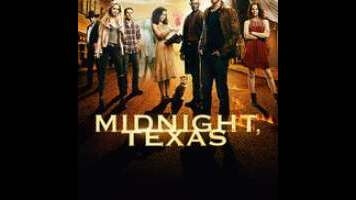Which is to say, if you’re going to enjoy NBC’s new supernaturally clothed series, you’ll have to turn off not only your own critical thinking skills, but possibly those of anyone within earshot in order to appreciate its dim-bulb charms. The show is adapted from a book series by Charlaine Harris, the same author responsible for the books that gave us HBO’s True Blood, an equally silly show that, for all its absurdity, had far more self-conscious hands behind the narrative wheel in showrunner Alan Ball. By contrast, executive producers David Janollari and Monica Owusu-Breen seem to fundamentally misunderstand the appeal of this kind of universe, sacrificing subtlety and character development for frantic but fruitless narrative momentum that never leads to growth or depth, and focusing on over-the-top CGI and creature-feature excitement rather than stable world-building. It’s a show where no one has layers beneath the surface, and any complications are either ignored or resolved by the end of every episode.
What pleasures there are to be had lie in the Southern-fried pulpy roots of the setting. Manfred Bernardo, a psychic who has the power to communicate with the dead, flees a debt in Los Angeles for the remote Texas town of Midnight, after the spirit of his dead grandmother (a psychic herself, who used to run grifts for a living with Manfred) tells him it will be a secure hiding spot. The town turns out to be sitting on a locus of mystical energy (shades of Buffy) and operates as a safe haven of sorts for supernatural beings of all types. There’s Lemuel, the polite vampire whose unusual abilities allow him to feed off of emotional energy rather than blood (though he’ll partake of the latter if need be); Fiji, the kindly witch with a talking cat named Mr. Snuggly (with nary a wink to the absurdity of this); Joe, a fallen angel with wings that switch from being his arms to separate appendages between the first and sixth episodes (probably due to how dumb the former looks); Olivia, a hothead fighter and weapons expert who is nevertheless human; and Bobo, another civilian who also is a badass fighter. Oh, and Creek, a woman with an overbearing father but who otherwise may just as well intone, “I’m a love interest for Manfred” every time she’s onscreen.
There are others, too, along with a rotating villain-of-the-week and the requisite ongoing soap-opera relationships between various townsfolk, none of which evolve anyplace beyond exactly where you’d expect them to. The people who care about each other end up together, and when they don’t, it’s a narrative contrivance, not because either of them are anything other than how they present themselves. Supposedly dark secrets possessed by numerous people, including Manfred, inevitably turn out to be not that bad or not their fault, thereby absolving anyone of having to be even somewhat of a bad—or even complicated—person. Midnight, Texas comes across more like a show Syfy would briefly air on Friday nights than a big investment on NBC’s part, something for young people who don’t particularly care about nuance or smarts.
What’s especially frustrating is that the show seems to work overtime to call out just how reductive and dumb it is, without any of the attendant meta impulses that might at least show it’s aware of or commenting on the ridiculousness of these tropes. It’s been about 20 years since anyone heard a woman on TV meeting new people she clearly doesn’t like or trust say, “I feel a migraine coming on, excuse me” and hear anything but a saucy dismissal. Yet in the world of Midnight, her boyfriend has to follow after her and say, “You don’t have a migraine, do you?” as though that were an insightful observation, and not something even actual soaps don’t need to underscore. Similarly, when Manfred is confronted in a bar by a cowboy eager to start a fight, he comes up with a screamingly phony excuse to get out of the brawl, but rather than being called out on his cheesy, ham-fisted acting afterward, another character admiringly says, “You’re good.” It’s one thing to have an audience be smarter than a character; it’s quite another for it to be smarter than the show itself.
Fortunately for the network, the series has a decent set of actors working overtime to sell this nincompoopery. Peter Mensah lends a gravitas and vulnerability to vampire Lemuel undeserved by the writing, and Parisa Fitz-Henley is such a warm and appealing presence as Fiji, it’s easy to overlook just how poorly the character is utilized. Strangely, the one who seems most out of place is Manfred himself. François Arnaud, so solid on The Borgias, is a bit lost in this mystical burg, with a boy-band hairdo and a flat affect at odds with the events swirling around him. The entire enterprise plays like a first draft rushed into production—too obvious to possess enough depth to keep viewers interested, and too weirdly unaware of its own goofy missteps to realize it should be in on the joke. “I thought I knew you,” says one character to her ostensible paramour. “That sad thing is, you do,” he replies. How true that is.


 Keep scrolling for more great stories from A.V. Club.
Keep scrolling for more great stories from A.V. Club.